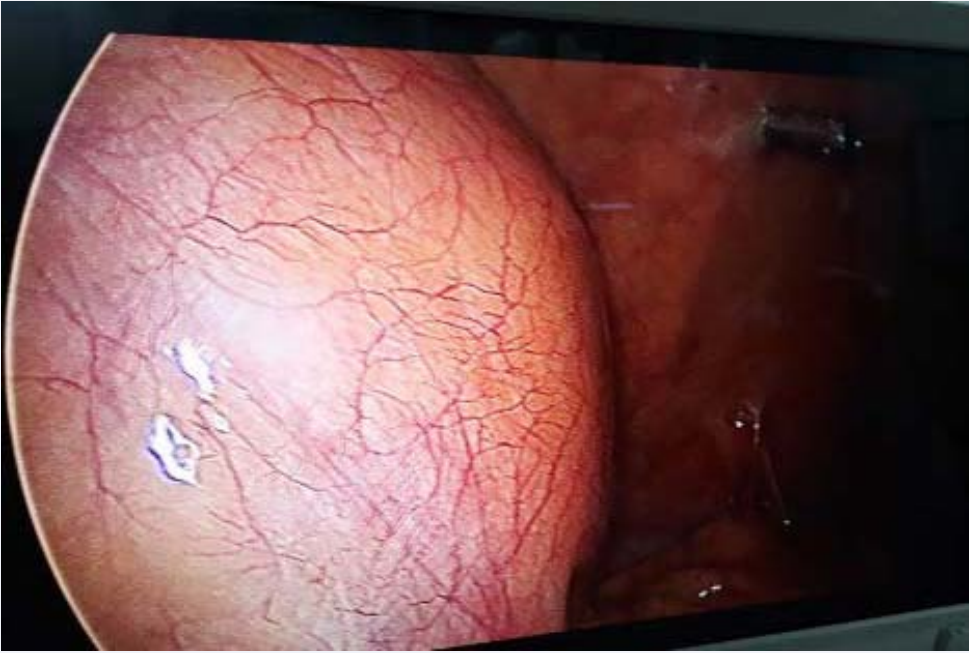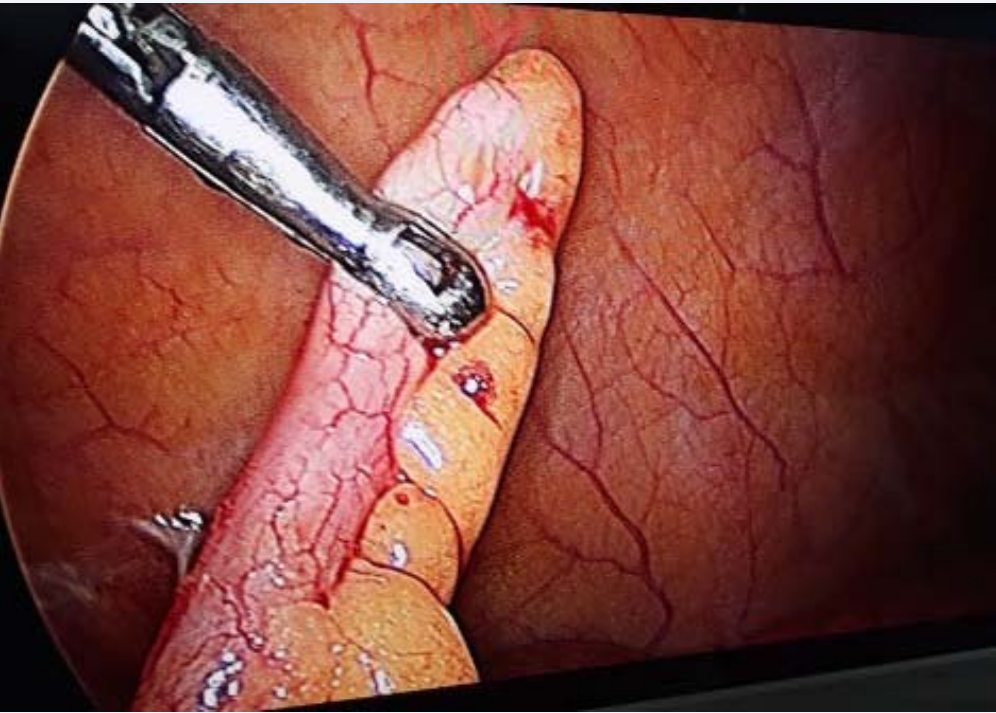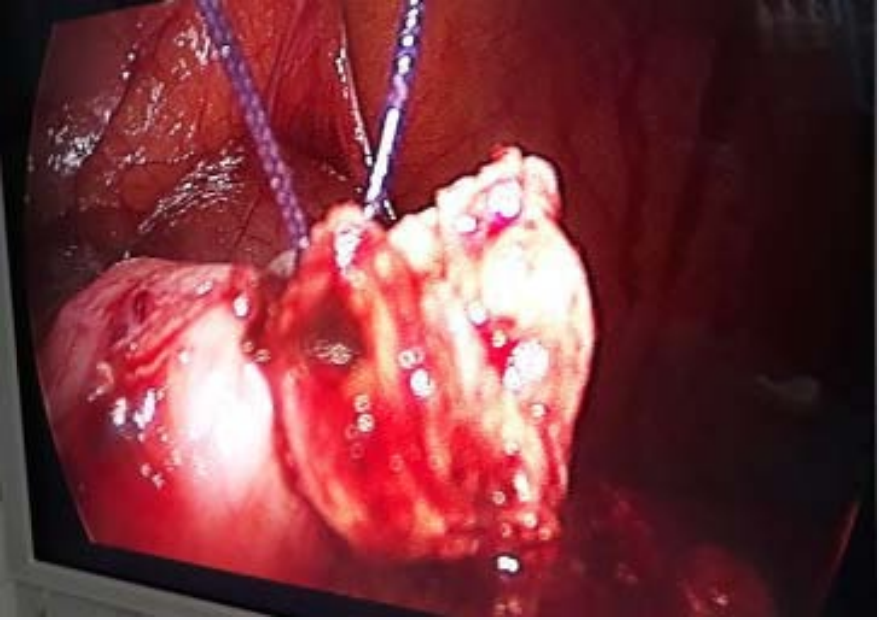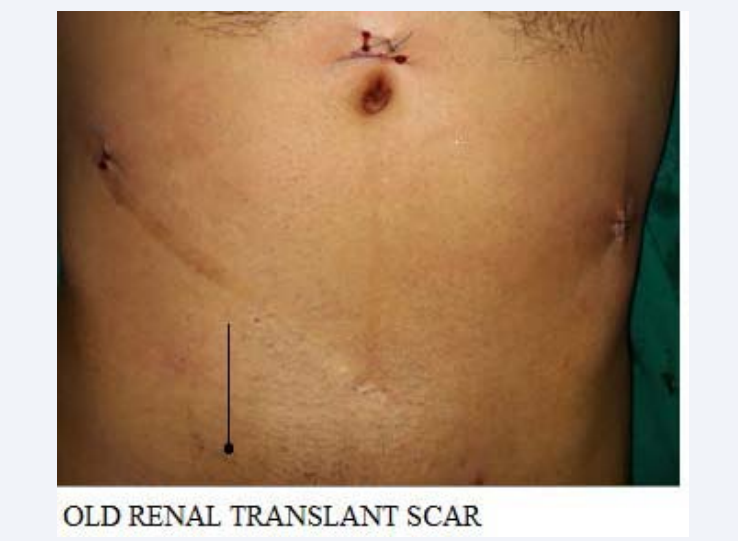Acute Appendicitis in Post Renal Transplant Recipient Case: A Rare Entity
- 1. Department of Surgery, Maharishi Markandeshwar Institute of Medical Sciences and Research, India
ABSTRACT
Appendicitis has rarely been reported following solid organ transplantation. Only a few cases of appendicitis have been reported in literature after renal transplantation. The clinical condition is particularly difficult to diagnose because of the atypical presentation in such patients. Early contrast enhanced computer tomography of the abdomen helps in preventing delays in diagnosis and treatment. Nowadays, Laparoscopic appendicectomy is the treatment of choice in these patients.
CITATION
Chowdhary K, Zaman M, Kaur G, Shah A, Yadav R, et al. (2018) Acute Appendicitis in Post Renal Transplant Recipient Case: A Rare Entity. J Surg Transplant Sci 6(1): 1066.
KEYWORDS
• Renal transplant
• Appendicitis
• Laparoscopy
INTRODUCTION
Acute appendicitis is an inflammatory process involving the appendix. About 10% of renal transplant patients present with acute abdominal pain. The most common conditions causing this pain include acute cholecystitis, gastric and duodenal ulcer complications especially perforations, diverticulitis, and pancreatitis [1]. Only a few cases of acute appendicitis have been reported in renal transplant recipients. The symptoms and signs may be delayed or nonspecific due to the masking of inflammatory signs in the immunosuppressed patient [2]. We present one such case report of acute appendicitis in a post renal transplant recipient patient in our institute.
CASE PRESENTATION
A 35 year old male presented with history of pain in right lower abdomen with nausea and multiple episode of vomiting in last two days. He received kidney transplant 2 years back for end stage kidney disease and was on immunosuppressant medication at the time of presentation. On clinical examination, in addition to abdominal fullness in lower abdomen could be appreciated along with a single healed oblique scar parallel to right inguinal ligament of previous kidney transplant operation. On palpation, marked tenderness seen in right lower abdomen just above the Mcburney’s point with rebound tenderness in right lower abdomen. His blood pressure was 130/80 mm hg and pulse 98/min, was a febrile. Provisional diagnosis of acute appendicitis was made and Ultrasound abdomen confirmed the diagnosis. Laboratory reports were also supporting with total leukocyte count 12800/mm3 and neutrophils 80. Alvarado score of patient was 7. Patient was resuscitated with intravenous fluids, antibiotics, analgesia and taken up for laparoscopic appendicectomy after proper informed consent. Intraoperative findings revealed bulge in the right Iliac fossa of transplanted kidney (Figure 1).
Figure 1: Bulge in right Iliac fossa of Transplanted Kidney.
Thick inflamed appendix with faecolith near the base of appendix was found. Caecum was found to be healthy and no meckel’s diverticulum found. Appendix was ligated at base and removed (Figure 2,3).
Figure 2: Inflamed and congested Appendix.
Figure 3: Ligated appendicular stump.
Post operative period was uneventful and patient was started on soft diet after 24 hrs and discharged on 2nd day. Sutures were removed on 7th postoperative day and histopathology of specimen revealed dense inflammatory cell infiltrates extending transmurally reaching upto periappendiceal fat suggestive of acute appendicitis [Figure 4].
Figure 4: Post operative picture showing port placement and old scar.
DISCUSSION
The incidence of acute appendicitis in transplant recipients is quite low in literature [1]. In a review of 8000 solid organ transplant recipients between 1989 and 2002, Savar et al., reported 17 patients who underwent surgery acute appendicitis of which three were renal transplant recipients [3]. Bardaxoglou et al reported two cases of acute appendicitis following renal transplant in their series of 416 cases [4]. In another large series of 2340 renal transplant recipients, Benjamin et al., reported two cases of acute appendicitis [5]. In the series by Savar et al., mean time from transplantation to appendectomy was 1064 days (16-2977 days) which in our case was 765 days. Alvarado score helps in diagnosing acute appendicitis and need for further investigations with score >9 confirmatory of acute appendicitis, 7-8 high likelihood of appendicitis, 5-6 equivocal (computer tomography abdomen can be done); 1-4 appendicitis can be ruled out. Acute appendicitis in renal transplant recipients may be confused with acute rejection or gastroenteritis. Atypical or delayed presentations may lead to increased incidence of septic complications or even mortality [6]. Though ultrasound abdomen remains the first investigation in acute abdomen but failure to reach the diagnosis may prompt early contrast enhanced computer tomography of the abdomen to preventing delays. In our case, Alvarado score was 7 with ultrasound confirming appendicitis so computer tomography was not done. Conservative management of acute appendicitis with antibiotics in transplant recipients must be considered with hesitation due to the high incidence of complications (24%) when compared to nontransplant recipients. Laparoscopic appendisectomy is the treatment of choice in these patients. The safety and feasibility of laparoscopy in renal transplant recipients has been proved without doubt by use in various procedures [7]. Laparoscopic approach leads to faster wound healing and reduced incidence of wound infection and incisional hernias [1].
CONCLUSION
Acute appendicitis though rare but is well documented in literature in post renal transplant recipient patient. In atypical presentations, high index of clinical suspicion and early computer tomography abdomen scan helps in confirming the diagnosis and prevent delays in treatment decreasing the morbidity and mortality. Laparoscopic appendicectomy is the treatment of choice in these patients.













































































































































